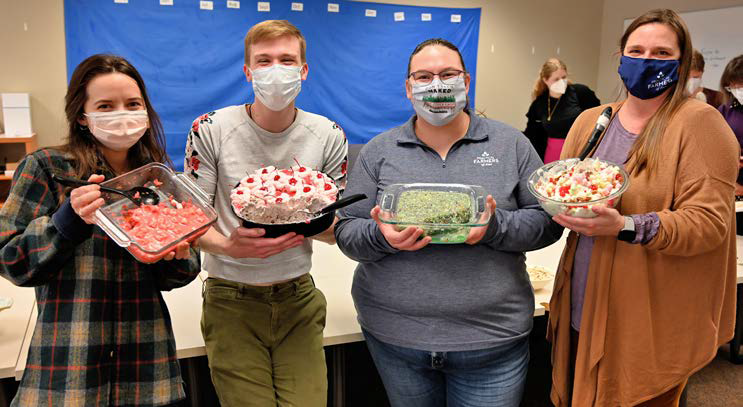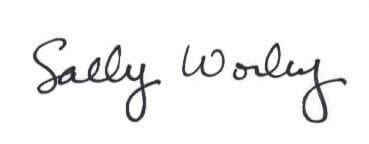From Adversity to Opportunity With the Help of Friends
Change is Hard
Change and adversity are intertwined. Sometimes hardship begets change, such as health issues, loss of income, climate change or, ahem, a pandemic. But sometimes the change is purposeful and forward-looking.
How can we set ourselves up for a better future state? Regardless, it is often impossible to tell what came first, the adversity or the change. And the cycle of change and adversity repeats itself again and again. Even when we intend to change, change is hard. It forces us from our familiar and is accompanied with difficult conversations and decisions. While it can be human nature to shy away from these discomforts, they help us to be drivers for change, rather than passengers that are simply reactive to it.

February Food Fun at the PFI Office: In a spirit of food festivity (and friendly competition), PFI staff had a bit of February fun celebrating a Midwestern culinary tradition: the fluff salad. Pictured here are the winners, from left to right: Lydia English, with her lemon-raspberry Jello “fluff”; Ryan Hansen, an AmeriCorps member, with his “grey forest fluff (aka poor person’s black forest cake)”; Suzi Howk, with her “green stuff” lime Jello-based dish full of minced veggies; and Sally Worley, with her “creamy pineapple fluff.”
I had the pleasure of attending a training that the Iowa Food Systems Coalition put on recently titled “Reimagining Our Food System.” This training asked some honest and solutions-based questions about how we work together to create a healthy food system that is accessible for everyone.
During this training, we were asked to reflect on how we act when we are confronted with discomfort. We learned that sometimes we shut down. Or, we can try to minimize the discomfort without working through it, which means that the discomfort is left unaddressed.
But if we lean in to the uneasiness, we can work through it. When we have uncomfortable conversations, it’s important that we acknowledge we’re human, and that discomfort is taxing. It’s also important to not take responsibility for things we can’t change, to know our circle of influence and focus on changing what we can.
Change Is Less Hard With a Support Network
Having some stability in your life helps us with change. For me, as many of you, that stability comes from my PFI network. While this network has grown, it has remained an unwavering source of support and creativity for many of us.
Vic Madsen, long-time PFI member, board member and farmer near Audubon, Iowa, watched our annual conference via livestream. He said: “I saw happy, talented people speaking from the heart. It doesn’t get any better than that. Someone told me many years ago that PFI is a safe place. To me, that means a place where people can be themselves without worrying about how others will judge them. How the safe-place attitude comes about is far above me. It probably starts with friendly, caring people who are not judgmental and people who are not self-promoting. Whatever makes it work, we need to keep doing it.”
Early PFI members, like Vic, set the tone for this welcoming network, where we “get along, but don’t go along.” We have been able to keep this space one where we can freely share our mosaic of ideas and farm systems with each other. This is so important for us in our individual and shared efforts.
This community, where people can be themselves – and can ask candid questions about aspirations and challenges – is a change-enabler. Done with purpose, in collaboration and with a plan, change is an opportunity. Practical Farmers of Iowa is not immune to change. In fact, as we grow, change is inevitable. But as you’ll see on pages 36-37, we are approaching the need to update our staff structure with intention and a sense of purpose so we are well-positioned for success, impact and growth.
We just finished up our winter season of events. At the Beginning Farmer Summit, participants in one networking group were asked to talk with one other and describe a community they belong to and what makes them feel part of that community. Here are a couple of reflections shared with the group:
David Arnold, Marshalltown, Iowa: “My community brings mutual curiosity and mutual hope for success for everyone in it.”
Nancy Brannaman, Lisbon, Iowa: “We have shared values, including around caring for the land. And we realize that caring for the land can heal other hurts in our lives.”
Thanks to all of you who joined us in community, and learning, to together work toward an Iowa with diverse farms, healthy food and vibrant communities. Together, we are changing the world.

